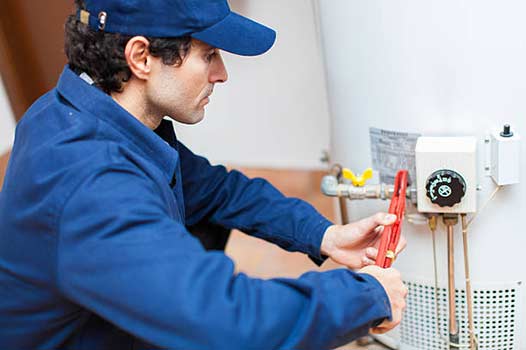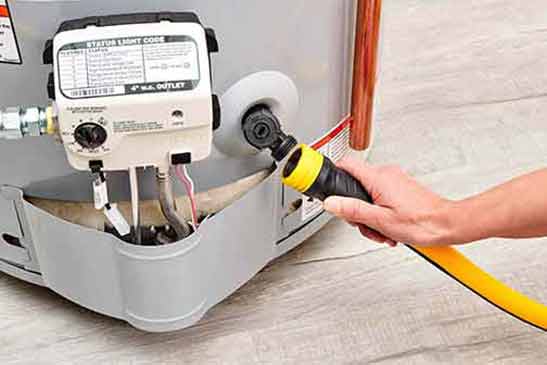
A water heater is an essential appliance in our homes, providing hot water for various purposes such as bathing, cooking, and cleaning. However, like any other device, water heaters can encounter issues that may disrupt their performance. It is crucial to address these problems promptly to ensure a steady supply of hot water and prevent further damage to the system.
Identifying Water Heater Issues
Before delving into the common challenges faced by water heaters, it is important to know how to identify potential issues. There are a few key signs that indicate a problem with your water heater:
- Lack of hot water: If the water from your faucet is not getting hot or is only lukewarm, there may be an issue with your water heater.
- Inconsistent hot water supply: If the hot water supply is sporadic or fluctuates in temperature, it could be a sign of a malfunctioning water heater.
- Strange noises: Unusual noises such as popping, rumbling, or hissing sounds coming from your water heater are indicative of underlying problems.
- Water leakage: Any visible water leakage around the water heater should be immediately addressed as it can lead to further damage.
- Unpleasant odor: Foul-smelling water could be a result of bacterial growth within the water heater.
- Rusty or discolored water: If you notice rust or discoloration in your hot water, it may be a sign of corrosion within the water heater tank.
Common Water Heater Challenges
Once the signs are recognized, it is essential to understand the common challenges that water heaters face. Some of these challenges include:
Sediment buildup
Over time, water heaters can accumulate sediment at the bottom of their tanks. This sediment is primarily mineral deposits that settle down due to the heating process. If not addressed, sediment buildup can lead to reduced efficiency and performance of the water heater. It can also cause the tank to corrode and deteriorate, resulting in water leakage.
Thermostat issues
A faulty thermostat can cause problems with temperature regulation in the water heater. If the thermostat is not functioning properly, it may result in insufficient heating, leading to lukewarm or cold water. It can also cause overheating, which is not only wasteful but also dangerous.
Heating element problems
A water heater’s heating element is responsible for heating the water inside the tank. Over time, these heating elements can wear out or malfunction, resulting in inadequate heating or no hot water at all.
Pressure relief valve malfunction
The pressure relief valve is a safety feature of water heaters that releases excess pressure built up inside the tank. If this valve malfunctions, the pressure inside the tank can reach dangerous levels, posing a risk of an explosion or tank rupture.
Anode rod deterioration
Anode rods are sacrificial rods that are present in water heaters to prevent corrosion within the tank. However, these rods can deteriorate over time due to chemical reactions, leaving the tank vulnerable to corrosion and rusting.

Proven Remedies for Water Heater Issues
Now that we have identified the common challenges faced by water heaters, let’s explore the proven remedies that can help resolve these issues:
Flushing the tank
To address sediment buildup, the water heater tank needs to be flushed regularly. This process involves draining the tank to remove the accumulated sediment. Flushing the tank can enhance the lifespan of the water heater, improve its efficiency, and prevent corrosion.
Adjusting or replacing the thermostat
If the thermostat is not functioning correctly, it may need to be adjusted or replaced. A professional plumber can assess the problem and recommend the best course of action. Proper temperature regulation is crucial for optimal performance and energy efficiency.
Replacing faulty heating elements
If the heating elements are defective, they need to be replaced. A licensed plumber can diagnose the problem and install new heating elements, ensuring a reliable supply of hot water.
Repairing or replacing the pressure relief valve
A malfunctioning pressure relief valve should be repaired or replaced to ensure the safe operation of the water heater. Regular maintenance checks can help identify if the valve is functioning properly or requires attention.
Replacing deteriorated anode rods
Anode rods should be inspected regularly and replaced if they are corroded or deteriorated. Doing so will protect the water heater tank from corrosion and extend its lifespan.
It is important to note that these remedies should be carried out by a licensed plumber or a professional service provider. Attempting to repair or modify the water heater without proper knowledge can lead to further damage and cause a premature replacement of the water heater.
Maintaining Your Water Heater
Prevention is always better than cure, and this holds true for water heaters as well. Regular maintenance can help identify potential issues before they become major problems and ensure the longevity of your water heater. Here are some maintenance tips to keep in mind:
- Annual inspections: Schedule annual inspections with a licensed plumber to assess the condition of your water heater and address any minor issues.
- Flushing the tank: As mentioned earlier, regularly flush the tank to remove sediment and prevent corrosion.
- Testing the pressure relief valve: Periodically test the pressure relief valve to ensure it is working correctly and releasing excess pressure.
- Checking for leaks: Keep an eye out for any water leakage around the water heater and promptly address it to prevent further damage.
- Adjusting the thermostat: Ensure the thermostat is set at the recommended temperature for energy efficiency and to prevent scalding.
In Conclusion
Resolving water heater issues requires timely identification and appropriate action. By familiarizing yourself with the common challenges faced by water heaters and the proven remedies discussed in this article, you can ensure a steady supply of hot water in your home.
Remember to prioritize regular maintenance of your water heater and seek professional help when needed to keep your water heater functioning optimally for years to come.

